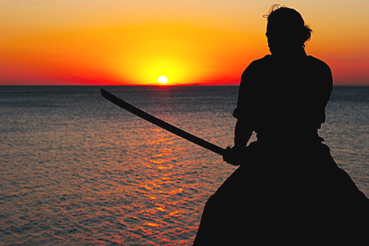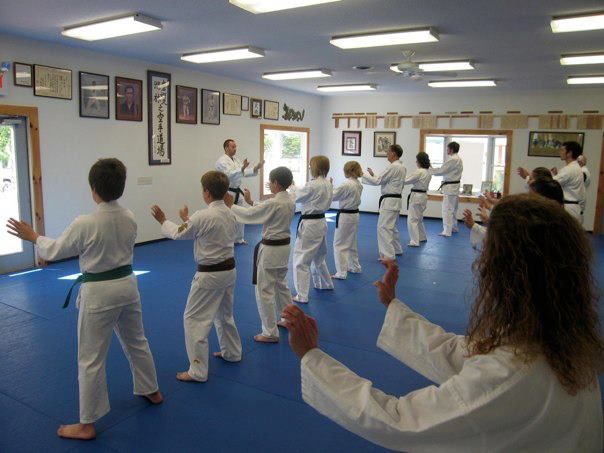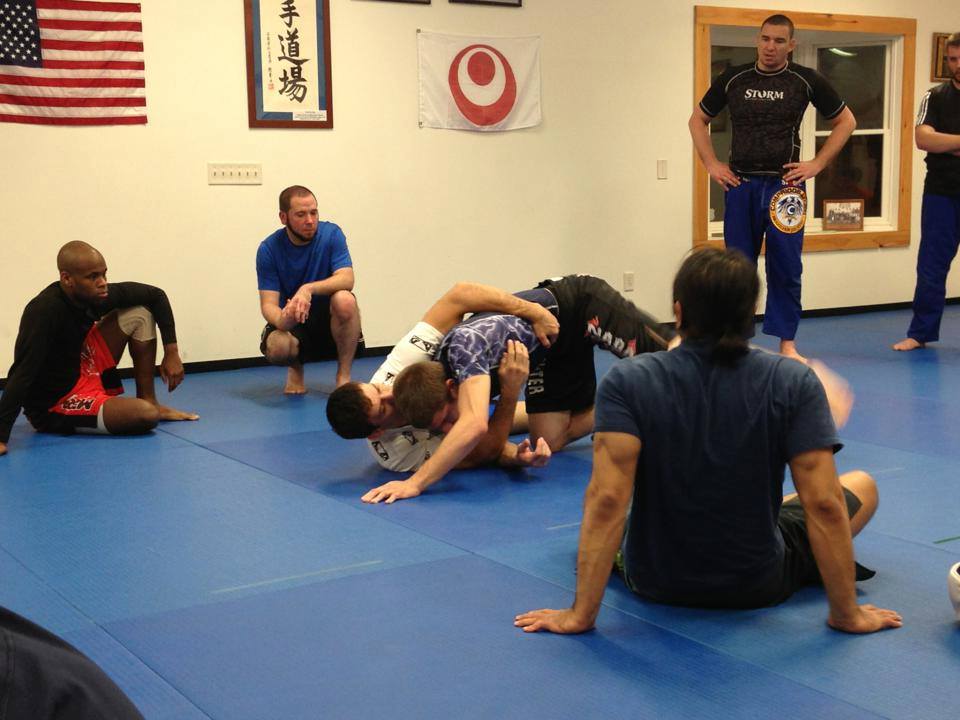
Just as important was the ability to stay calm and focused even under tremendous pressure. A warrior could possess amazing physical skills, but crumble the first time they face an opponent with a three foot sword that is as sharp as a razor where just one mistake meant certain death. So, in addition to physical skills, the Samurai trained to develop their minds and control their “spirit” or emotions to have the best chance of survival in on the battlefield. This included three important principles of mental and emotional development known as Mushin, Zanshin, and Fudoshin.
Mushin means clear or “empty” mind. This is not to be confused with an absent mind. Rather, it means to eliminate useless thoughts, noise and confusion in our mind, so that it can be very clear and open. Mushin allows the martial artist to be clear minded in their technical training, demonstrative performances and real time applications of their material.
Zanshin is awareness and alertness. This includes awareness of our surroundings, of ourselves, of social situations, and of our actions and behavior. Long term development of Zanshin can also increase our “big picture” awareness in our lives and of the world around us. It can also help with seeing how our choices will likely affect future situations. Zanshin is awareness on an a very clear and instinctive level, not consciously thinking our way through our environment. Having a heightened sense of awareness allowed the warrior to recognize attacks and react quickly.
Fudoshin is calmness and emotional stability. This is the ability to remain calm and stable under pressure. It is minimizing feelings of fear, anger, impulsiveness, revenge, hopelessness, and even anxiety or depression. Calmness and stability allows a martial artist to maximize their efforts regardless of the circumstances. This can take years to master, but may be the most important and valuable trait for a warrior to acquire.
These principles all depend on one another to reach their full potential. Each is important in their own way but, when combined together, they will bring the warrior or martial artist to new heights in their training and performance when it matters most.
Although some martial arts put more emphasis on these concepts than others, most will provide them over time if the student is open to learning them. These ideas takes time to understand and develop and should be included in every advanced student’s practice. A basic understanding and ability should be achieved by the time the student has achieved advanced rank, too. This is why awarding advanced rank, such as the black belt, should only happen after a number of years of a student’s training. Promotions to advanced rank without a general understanding of these principles is a failure on the part of the student, and the teacher.
These principles ARE all important in the dojo/gym or in real time application....but they can all be applied in our everyday lives, too. Each can benefit us tremendously in work, school, sports, activities, home projects, socially, the inevitable crisis that pop-up, and even in our personal relationships. For example, learning to focus and eliminate distractions can help us to give our full attention to projects, tests, or just listening to a friend. Being more aware can help us fully evaluate situations and avoid problems in self-defense, in driving, or in a golf game. Staying calm and stable helps us to minimize making decisions based on emotional noise (like anger, jealousy, or bitterness), leading to intelligent solutions and management of our lives....even under intense pressure.
In the modern day if we learn and adopt the principles of clarity...Mushin, awareness...Zanshin, and calmness...Fudoshin, we can greatly improve the quality of our lives and the lives of those around us. In weaving these abilities into our lives we can use the principles that kept the Samurai alive on the battlefield to live more intelligently, make good decisions, and minimize unnecessary drama and stress. We can be healthy and happy living Samurai!



 RSS Feed
RSS Feed